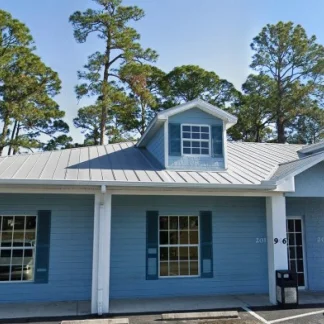AA - Alcoholics Anonymous
AA – Alcoholics Anonymous is a non-profit rehab located in North Port, Florida. ...
Operation PAR, located in Port Charlotte, Florida, is a leading provider of high-quality, affordable substance use disorder treatment, and one of the nation’s leaders in client-focused, science-based care. Their programs extend through a wide continuum of care that treats clients from prevention to outpatient services.
Operation PAR offers detox, residential treatment, outpatient services, and medication assisted treatment.
The detox program at Operation PAR is for those who need assistance removing toxic substances from their body in a safe and supportive way. Detoxification done at home can be dangerous and even lethal. Medically supervised detox through Operation PAR offers monitoring of vitals to ensure safety.
The residential treatment program at Operation PAR is for individuals who need a high level of care and routine at the beginning of their recovery process. Evidence-based treatment services through individual counseling, group therapy, and psycho-educational classes are provided. Case management services and continued care planning are also provided.
The outpatient programming at Operation PAR is for those who are stable enough to commute to treatment and then return home in the evening for rest. This program combines individual therapy, group therapy, and educational classes that focus on recovery. Mental health and physical health care are also offered. Outpatient treatment lasts the duration best suited to each individual based on their unique challenges, needs, and goals.
Medication Assisted Treatment provides medications along with comprehensive medical, psychiatric, and behavioral counseling. FDA approved medications are used to support withdrawal from opioid drugs and to help maintain long-term abstinence. By combining medication with mental health treatment, a greater chance of success is achieved for long-term abstinence.
Group therapy involves treatment through the process of connecting in a group setting to discuss and work through mental, emotional, and physical issues. There are a number of different group therapy modalities, including support groups, experiential therapy, psycho-education, and more.
Contact us for more information: (727) 538-7243

Connect with Operation PAR by calling their admissions team directly.
(727) 538-7243 Website Get DirectionsThe Commission on Accreditation of Rehabilitation Facilities (CARF) is a non-profit organization that specifically accredits rehab organizations. Founded in 1966, CARF's, mission is to help service providers like rehab facilities maintain high standards of care.
CARF Accreditation: Yes
Research clearly demonstrates that recovery is far more successful and sustainable when loved ones like family members participate in rehab and substance abuse treatment. Genetic factors may be at play when it comes to drug and alcohol addiction, as well as mental health issues. Family dynamics often play a critical role in addiction triggers, and if properly educated, family members can be a strong source of support when it comes to rehabilitation.
Group therapy is any therapeutic work that happens in a group (not one-on-one). There are a number of different group therapy modalities, including support groups, experiential therapy, psycho-education, and more. Group therapy involves treatment as well as processing interaction between group members.
In individual therapy, a patient meets one-on-one with a trained psychologist or counselor. Therapy is a pivotal part of effective substance abuse treatment, as it often covers root causes of addiction, including challenges faced by the patient in their social, family, and work/school life.
Group therapy is any therapeutic work that happens in a group (not one-on-one). There are a number of different group therapy modalities, including support groups, experiential therapy, psycho-education, and more. Group therapy involves treatment as well as processing interaction between group members.
In individual therapy, a patient meets one-on-one with a trained psychologist or counselor. Therapy is a pivotal part of effective substance abuse treatment, as it often covers root causes of addiction, including challenges faced by the patient in their social, family, and work/school life.
In individual therapy, a patient meets one-on-one with a trained psychologist or counselor. Therapy is a pivotal part of effective substance abuse treatment, as it often covers root causes of addiction, including challenges faced by the patient in their social, family, and work/school life.
AA – Alcoholics Anonymous is a non-profit rehab located in North Port, Florida. ...
Second Chance Recovery is a private rehab located in Murdock, Florida. Second Ch...
Mission Unity is a private rehab located in Port Charlotte, Florida. Mission Uni...
Second Chance Recovery is a non-profit rehab located in North Port, Florida. Sec...